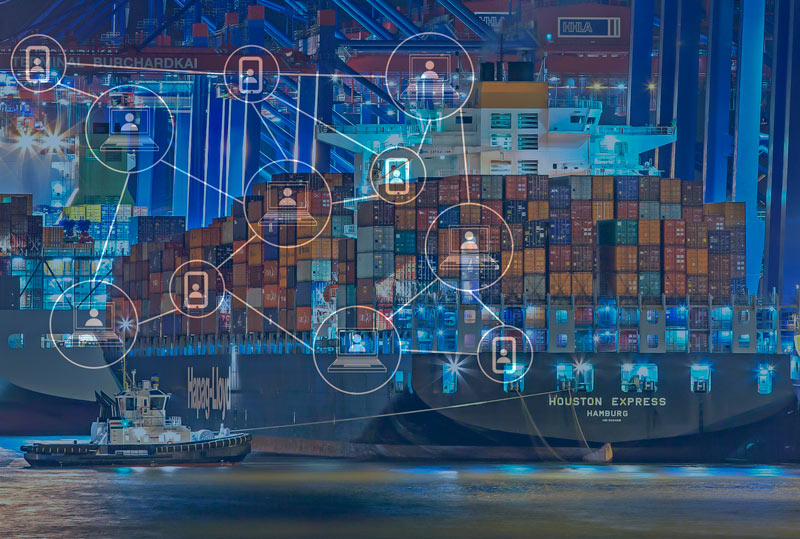New technologies are making their way in the logistics and port transport sector. In fact, the port industry is one of the most innovative, and a point of reference in the deployment of technologies to digitalise processes and management systems to gain efficiency and sustainability. The objective: to firmly establish what has been defined as Smart Ports.
In fact, one of the disruptive technologies being developed at warp speed in the sector is blockchain. The term is now in vogue in all kinds of technological, institutional and business circles, and though it is still in an initial deployment phase and can create hesitation, experts are already lauding this technology’s opportunities and transformational potential.
What is blockchain, exactly?
It is an unalterable, de-centralised ledger. In other words, a database shared by every participant in a network that keeps all the information and a record on the transactions made within it, and it cannot be modified without the approval of all members.
The key to this technology is trust: all the members (or nodes) have the same information, so the data are verified and reliable. This system eliminates the need for third parties in exchanging goods and services, maximising efficacy, security and traceability.
This technology was born in 2009 with the bitcoin payment system, and has experienced a huge boom in finance and in funding start-ups.
Blockchain and the logistics chain
Today, blockchain has huge potential to transform the logistics chain at ports, particularly, and how products are produced, sold and exchanged, in general.
In fact, it is already being successfully deployed at ports all over the world. Thus, in Rotterdam, they have installed a field laboratory focused on blockchain technology, with the participation of several banks and universities. The project aims to explore the opportunities offered by this technology in complex port logistics.
Another example is the start-up T-Mining, which has developed a secure system for container pick-up. It is already in operation at the PSA Terminal in Antwerp.
On the other hand, the transport company Maersk has also taken the leap toward blockchain technology. Along with IBM, they have developed a system to track the content of their sea containers, to reduce bureaucratic procedures and improve traceability.
This is an important feature, since the cost of the commercial documentation required to process and administer these goods represents one-fifth of the costs of physical transport. If these barriers are reduced, worldwide trade could grow by 15%, according to the World Economic Forum.



Comments are closed.